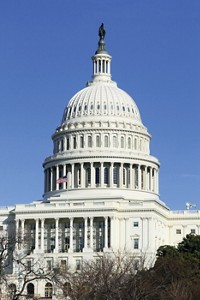Advertisement
Grab your lab coat. Let's get started
Welcome!
Welcome!
Create an account below to get 6 C&EN articles per month, receive newsletters and more - all free.
It seems this is your first time logging in online. Please enter the following information to continue.
As an ACS member you automatically get access to this site. All we need is few more details to create your reading experience.
Not you? Sign in with a different account.
Not you? Sign in with a different account.
ERROR 1
ERROR 1
ERROR 2
ERROR 2
ERROR 2
ERROR 2
ERROR 2
Password and Confirm password must match.
If you have an ACS member number, please enter it here so we can link this account to your membership. (optional)
ERROR 2
ACS values your privacy. By submitting your information, you are gaining access to C&EN and subscribing to our weekly newsletter. We use the information you provide to make your reading experience better, and we will never sell your data to third party members.
Policy
Budget Battles
Panel Calls For Reform Of Broken Federal Budget Process
by Andrea Widener
May 14, 2012
| A version of this story appeared in
Volume 90, Issue 20
A dysfunctional process is responsible for at least part of the constant uncertainty in federal budgets, a panel of budget experts explained at the American Association for the Advancement of Science annual forum on science and technology policy.
The budget process has always been too complicated and has too many basic flaws, said Alice M. Rivlin, founding director of the Congressional Budget Office. But now Congress isn’t even following the process because polarized politics has made it too difficult.
“We seem to have lost the art of bringing two sides together and having a pragmatic discussion,” Rivlin said.
President Barack Obama and think tanks have made several attempts to develop a bipartisan solution to the current budget crisis—including two commissions that Rivlin was on. Both have come to the conclusion that spending cuts and new taxes are both vital.
“If you have a problem this big, there are only so many ways you can actually fix it, and you can’t do it on just one side,” as both spending cuts and new taxes are necessary, said Maya MacGuineas, president of the Committee for a Responsible Federal Budget. “It becomes kind of absurd to look at the willingness to put partisan politics ahead of problem solving, and this is so clearly a problem that needs bipartisan solutions because it is so hard to do: changing entitlements, raising taxes, talking about the retirement age.”
One promising development, some speakers noted, is that the coming sequestration and the end of the President George W. Bush-era tax cuts could combine in a way that forces big changes, including budget cuts, a tax system overhaul, and reforms of the budget process itself. Reform advocates who spoke at the forum are pushing for five- or 10-year budget cycles that would allow agencies to plan ahead. This would be a vast improvement to the string of continuing resolutions that keep the government running for just a few months at a time, MacGuineas said.



Join the conversation
Contact the reporter
Submit a Letter to the Editor for publication
Engage with us on Twitter